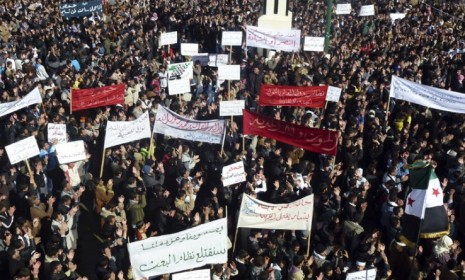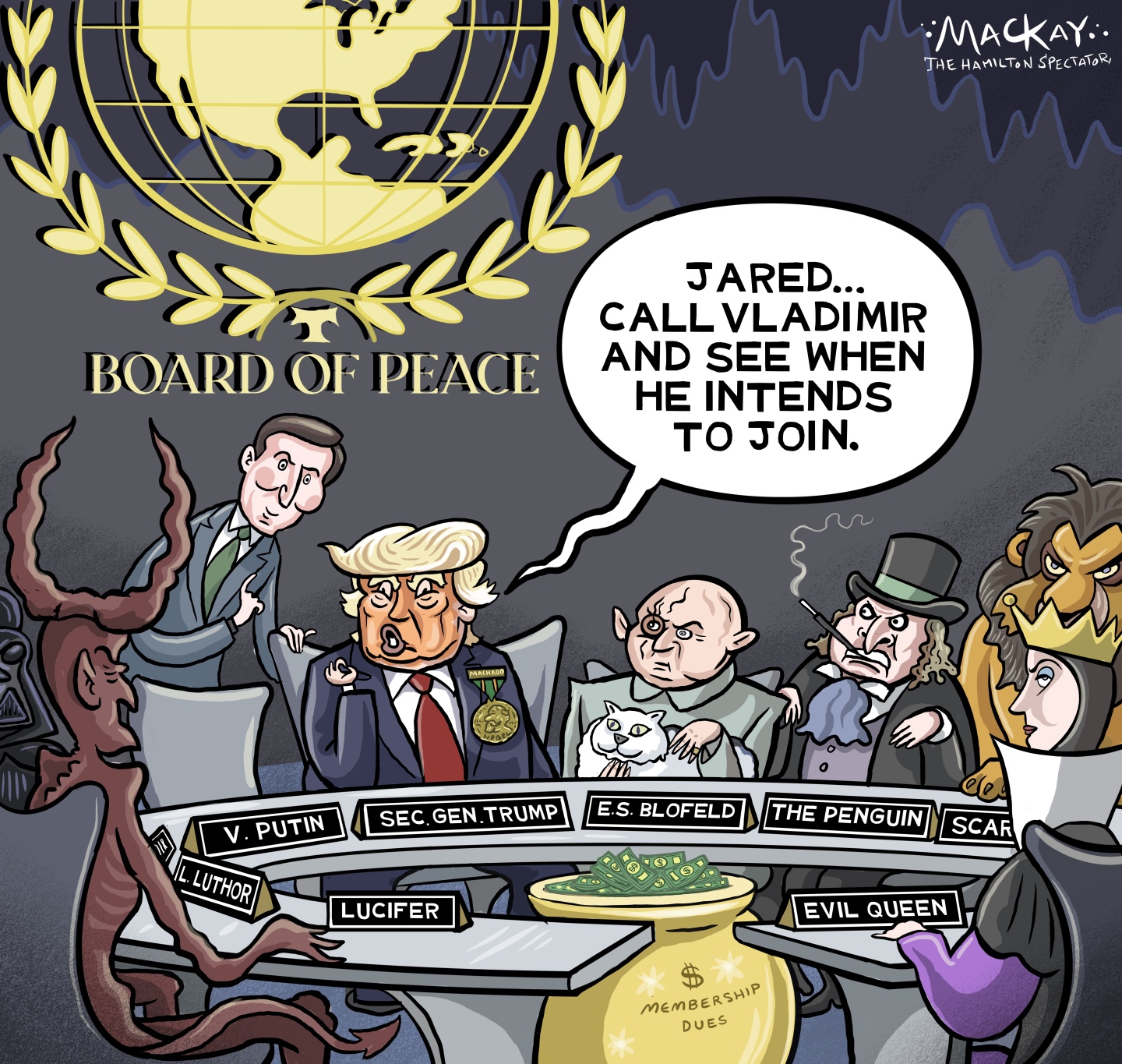Syria: What's the Arab League's next move?
Regional leaders call for a cease-fire and a U.N.-Arab peacekeeping force in Syria. Can they make it happen?

Arab League foreign ministers on Sunday called on the U.N. Security Council to approve a joint United Nations-Arab League peacekeeping force for Syria, and urged Arab states to cut off diplomatic ties with Syrian President Bashar Assad's regime. The bloodshed in Syria "is a disgrace for us as Muslims and Arabs to accept," says Saudi Foreign Minister Saud Al-Faisal. Assad's government immediately rejected any form of foreign intervention. What should be the Arab League's next step?
The league must keep the pressure on the U.N.: Arab leaders, says Roula Khalaf at Financial Times, are signaling that they are "not retreating, or compromising to assuage Moscow and Beijing," both of which vetoed a Security Council resolution condemning the Syrian regime. The Arab League is offering reluctant powers two choices: "Agree to an Arab-UN peacekeeping mission to restore stability to Syria," or stand back while Arab states "work with a coalition of the willing" to end the bloodshed.
"Arab League turns the screw on Assad regime"
The Week
Escape your echo chamber. Get the facts behind the news, plus analysis from multiple perspectives.

Sign up for The Week's Free Newsletters
From our morning news briefing to a weekly Good News Newsletter, get the best of The Week delivered directly to your inbox.
From our morning news briefing to a weekly Good News Newsletter, get the best of The Week delivered directly to your inbox.
Arab leaders should not wait for the U.N.: The "only viable option" for peace, says Mehdi Hasan in Britain's Guardian, is for the Arab League to mediate talks between the opposition and the regime. "Arab League countries — ideally Egypt or Tunisia, rather than pro-intervention Gulf autocracies — would take the lead, sending in human-rights monitors and, if necessary, peacekeepers (or 'green helmets')." At least an Arab League intervention might end the killings — Western air strikes would just mean more blood.
The Arab League has no legitimacy here: These Arab leaders have no right to condemn Syria, says Syria's Champress in an editorial. Their own governments "have killed millions of people." Besides, they're not legitimate peace-seekers, just "Arab tools" for meddling Western neo-colonialists. If they wanted to mediate peace talks, they would stop condeming the regime while "ignoring the acts of armed terrorist groups in Syria."
"Western colonial powers thank Arab conspiring tools for their efforts against Syria"
A free daily email with the biggest news stories of the day – and the best features from TheWeek.com
-
 The world is entering an era of ‘water bankruptcy’
The world is entering an era of ‘water bankruptcy’The explainer Water might soon be more valuable than gold
-
 Powell: The Fed’s last hope?
Powell: The Fed’s last hope?Feature Federal Reserve Chairman Jerome Powell fights back against President Trump's claims
-
 Political cartoons for January 23
Political cartoons for January 23Cartoons Friday's political cartoons include the new Board of Peace, a market rebound, and Melania at the movies